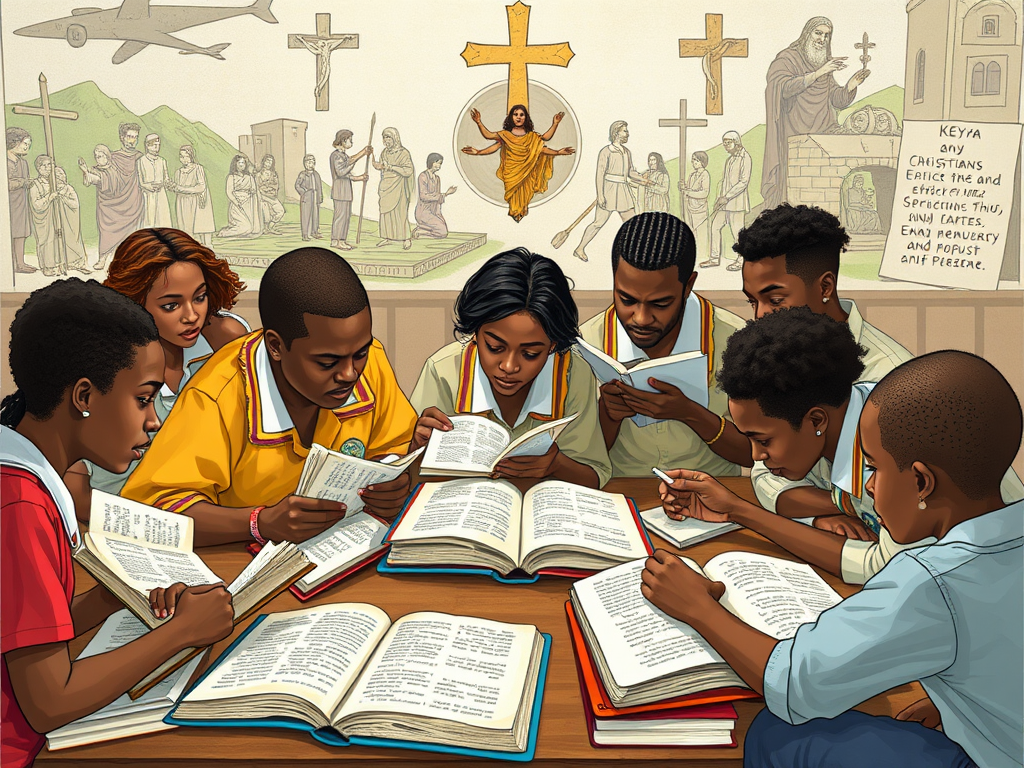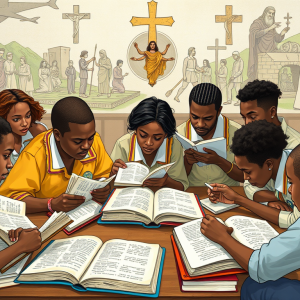Description
Analysis of Featured Questions by Topic and Relevance
1. Biblical Knowledge
- Questions:
- Identify five books in the bible referred to as writings.
- Explain how the Ten Commandments apply to the life of a Christian today.
- Relevance:
- These questions assess students’ familiarity with the Bible, which forms the cornerstone of Christian education. Understanding biblical texts and their applications in modern life is crucial for students in developing a personal faith and moral framework.
2. Theological Concepts and Divine Interaction
- Questions:
- Explain four steps taken by God to heal the damaged relationship with mankind after the fall of man.
- Give four reasons why God rescued the Israelites from Egypt.
- Relevance:
- These questions delve into theological themes concerning humanity’s relationship with God. They encourage students to explore concepts such as redemption, grace, and divine intervention, which are pivotal in understanding Christian theology and the narrative of salvation.
3. Christian Practice and Co-Creation
- Questions:
- How do Christians continue being co-creators with God?
- Outline five ways God shows concern for the Israelites as they traveled in the wilderness.
- Relevance:
- These questions emphasize the active role of Christians in their faith and their responsibility towards creation and community. They highlight the importance of practical applications of faith, encouraging students to engage in social justice, stewardship, and communal care, thus linking biblical principles to contemporary issues.
4. Prophetic Insights and Social Justice
- Questions:
- Explain eight functions of the Temple to the Jewish people.
- Why did Prophet Elijah face danger in His Prophetic Ministry?
- Describe five visions of Prophet Amos.
- Relevance:
- These questions focus on the role of prophets and the Temple in Jewish life, emphasizing their functions in promoting social justice and ethical conduct. They encourage students to understand how prophetic messages relate to societal issues and the importance of standing up against injustice, making them relevant in discussions about moral leadership today.
5. Cultural Context and Traditional Practices
- Questions:
- Outline seven rituals marking the birth of a child in traditional African society.
- With reference to traditional African communities, state seven ways in which Africans sought reconciliation with God.
- Relevance:
- These questions bring attention to the intersection of faith and culture, encouraging students to appreciate and respect diverse religious expressions. Understanding traditional practices fosters a broader perspective on how faith influences cultural identity and community cohesion, which is essential in a multicultural society.
6. Critical Thinking and Ethical Reflection
- Questions:
- Identify five factors that may lead people away from the worship of God.
- State four aspects of Israelite religion which Amos condemned.
- Relevance:
- These questions prompt critical reflection on contemporary challenges to faith, such as materialism and societal pressures. They encourage students to think ethically about their beliefs and the implications of their actions, fostering a sense of responsibility in their spiritual journey.
7. Historical and Social Context
- Questions:
- Outline the contents of Jeremiah’s Temple sermon.
- State three symbolic acts of prophet Jeremiah related to hope and restoration.
- Relevance:
- These questions provide historical context to the study of the Bible, helping students understand the socio-political dynamics during biblical times. They encourage students to draw parallels between historical events and current societal issues, reinforcing the timeless relevance of biblical teachings.



Reviews
There are no reviews yet.